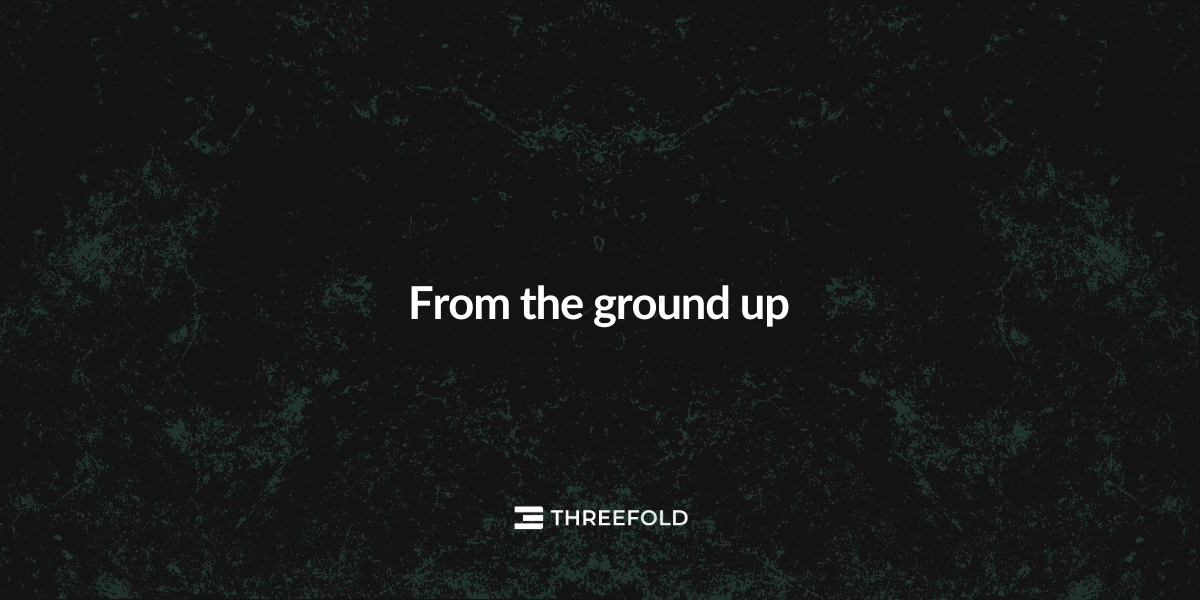From the ground up: Three inventions that make ThreeFold possible
The future of the Internet lies in breaking free from the constraints of outdated, centralized systems and embracing a new paradigm.

Building a cloud and internet infrastructure from the ground up is no easy, or quick, task. But if we want a truly different way forward, there is no other way, really. We do what we do, the way we do it, because we cannot continue to put “band-aids” on problems which require a much deeper and thoughtful approach.
Failing to address systemic flaws at their root cause only creates more issues.
This is how, in part, the Internet today became a complex, unsafe, inefficient, highly-centralized system in the first place – where many of the biggest platforms also own the infrastructure and profit from us, the “users.”
This is why we see outages and shutdowns and data hacks and masses of people migrating from platform to platform in search of greater privacy. But remember, you’re not “De-Googling” yourself if the alternative you migrate to runs on Google or some similar centralized cloud infrastructure.
This is why we have built a decentralized autonomous cloud infrastructure from the ground up. To enable a sovereign Internet which is owned by the people – safe, secure, and can scale to billions, all while driving cost and energy consumption down dramatically.
So let’s take a look at what makes this all possible:
🔗A new bare metal operating system
It is challenging to use current Linux-based operating systems safely and efficiently on the edges of the Internet. They require central management, involve excessive complexity, and prove difficult to update and maintain, resulting in numerous security vulnerabilities. To revolutionize the internet, we had to rethink how we host our applications, essentially reinventing the concept of a cloud-based operating system.
Zero OS is an innovative operating system, retaining the Linux kernel but fundamentally redesigned for heightened security, efficiency, and support for true peer-to-peer and decentralized workloads. This unique operating system doesn’t require installation on hard disks or SSDs; it remains stateless, consistently up to date, and autonomously managed without human intervention. Its design enables scalability to millions of nodes and self-healing application delivery, opening new possibilities in system resilience and reliability.
🔗A quantum safe storage system
Traditional backend storage systems have their roots in centralized environments, focusing on low-latency and closed security setups. However, these characteristics make them less suitable for use in decentralized cloud contexts.
Newer generation storage systems such as protocol-driven or blockchain-based solutions may face scalability and performance limitations and may not fulfill certain critical requirements that we consider essential.
Quantum Safe Storage is an ultra-scalable system capable of storing data indestructibly and efficiently. Previous versions of this system created by our team are widely used to store Zetabytes of information by large organizations.
🔗A quantum safe network system
The current centralized state of the internet poses significant security risks, with compromised routers and growing cyber threats (trillions of USD per year now), making everyone vulnerable to hacking. Industry responses involve disabling original features, hindering true peer-to-peer connectivity and personal server capabilities. Workarounds and system hacks have become the norm.
Mycelium is an overlay network layer designed to enhance the existing internet infrastructure while remaining compatible with all current applications. It empowers true peer-to-peer communication. Mycelium can look for the shortest path, has a built-in naming and CDN (Content Delivery) system, and can survive disaster and network cuts much more efficiently as is possible today.
🔗The only way
The future of the Internet lies in breaking free from the constraints of outdated, centralized systems and embracing a new paradigm. By fundamentally addressing the root causes of inefficiency, insecurity, and centralization in today’s systems, we can create a more resilient and equitable digital world.
If interested, go deeper into the inner-workings of the Internet as compared to ThreeFold.

